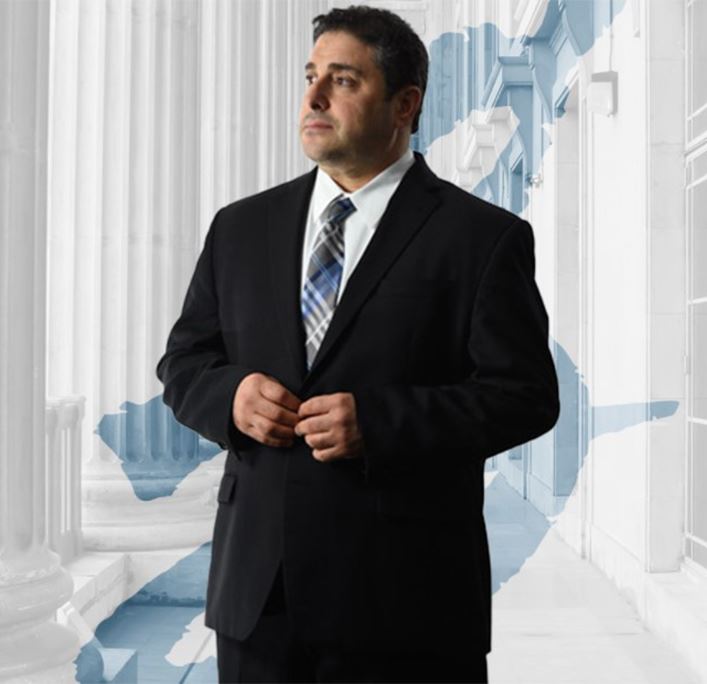
Long Island Nursing Home Abuse Attorney
Understanding Your Elderly Loved Ones' Rights
Placing a parent, grandparent, or loved one in a nursing home is not an easy choice. Typically, nursing homes will give you a tour of the facility to put your mind at ease, but not all of these facilities or their staff are as honest or as committed to their job as you may think. Sadly, nursing home abuse is reported in homes all across the country (as approximately one-third of homes have been cited).
Protecting Your Loved Ones in Long Island: Local Resources and Support
Living in Long Island, we understand the unique challenges our community faces when it comes to ensuring the safety and well-being of our elderly loved ones. The Nassau County Department of Social Services and the Suffolk County Office for the Aging are key local government entities that provide resources and support for elder care. These organizations are dedicated to safeguarding the rights of seniors and can be invaluable allies in the fight against elder abuse.
One of the most pressing concerns for families in Long Island is the prevalence of nursing home abuse. With numerous facilities spread across the area, from Hempstead to Huntington, it can be daunting to ensure that your loved one is receiving the care they deserve. Unfortunately, reports of neglect and mistreatment are not uncommon, making it crucial to stay vigilant and informed.
At the The Law Office of Gregory A. Goodman, P.C., we are deeply familiar with the local landscape and the specific pain points faced by families in Long Island. Whether it's navigating the complexities of local elder care regulations or understanding the nuances of specific nursing homes in the area, we are here to help. Our commitment to the community means we are always ready to stand up for your loved ones and ensure they receive the justice and compensation they deserve.
Don't let your loved one suffer in silence. Reach out to us today and let us provide the support and legal guidance you need to protect them. Together, we can make Long Island a safer place for our seniors.
Ready to Stand Up for Your Loved One? Call Us Now at (800) 242-3740 or Request Your Free Consultation Online
If your loved one has fallen victim to any form of abuse, let the Law Office of Gregory A. Goodman, P.C. fight to protect them. Our Long Island nursing home abuse attorney prioritizes accessibility to our clients. We are committed to pursuing justice and compensation on your loved one's behalf.
Common Signs of Nursing Home Abuse
There are many reasons why adults choose to put elderly loved ones in a nursing home. These reasons include not having space or the ability to provide care, fragile medical conditions, and a loved one's preference. Whatever the reason may be, the patient deserves to be treated with respect and care. You expect that their physical and mental well-being will be looked out for and if the facility has failed, you can take legal action.
A few signs of nursing home abuse include:
- Bed sores
- Unexplained bruises or broken bones
- Falls
- Neglect
- Deprivation of food, malnutrition, and dehydration
- Unreasonable restraint or physical assault by staff
- Changes in behavior
- Untreated injuries
- Poor hygiene

Our Satisfied Clients
We genuinely care about our clients and will do everything we can to ensure their satisfaction
-
“Best money I ever spent!”
Excellent lawyer! I live out of state and needed a lawyer in NY I could trust. He made no promises, always upfront about the possible outcomes. He always worked very hard to get me the results I needed. He came through every time! He understood my financial circumstances and worked with me so I could hire him within my budget. Best money I ever spent! He’s honest and trustworthy, and I’m grateful for his help in more than one legal matter. I can’t say enough great things about Greg.- Ted R. -
“Gregory Goodman is very professional and consistent.”
Gregory Goodman is very professional and consistent, he provides in detail all options and is very thorough with his work, I highly recommend. He helped with a situation a few months ago and since then all has been very well! Thank you Gregory Goodman!- Davin S. -
“Mr Gregory was very pleasant, helpful & considerate.”
Mr Gregory was very pleasant, helpful & considerate. I would highly recommend him.- Ruth B. -
“Very professional”
Very professional, very respectful and kind, and got the job done for me.- Barwhale G. -
“Greg will thoroughly, effectively and patiently represent you for all your personal injury needs. Cannot recommend him enough.”
“Greg will thoroughly, effectively and patiently represent you for all your personal injury needs. Cannot recommend him enough.”- Steven D. -
“I highly recommend Mr. Goodman.”
I highly recommend Mr. Goodman. I was in a hopeless, scary medical debt situation which he was able to assist me with. From my first consultation with him the weight was lifted off my shoulders. Within just a short time court was able to be avoided and a reasonable settlement was established.- Gabrielle B. -
“Gregory handled a Consumer Credit dispute for me within weeks!”
Gregory handled a Consumer Credit dispute for me within weeks! He's very efficient, responsive, and professional. I would definitely recommend him for helping you resolve your consumer credit disputes!- Bee. G -
“Greg is a very trustworthy, knowledgeable attorney”
Greg is handling a litigation matter for me. He is efficient, is moving my case right along and treating me with the upmost respect. He keeps me advised of all phases of the case and I believe he will fight for the best recovery that I can possibly receive. Not many attorneys are this conscientious.- Client
